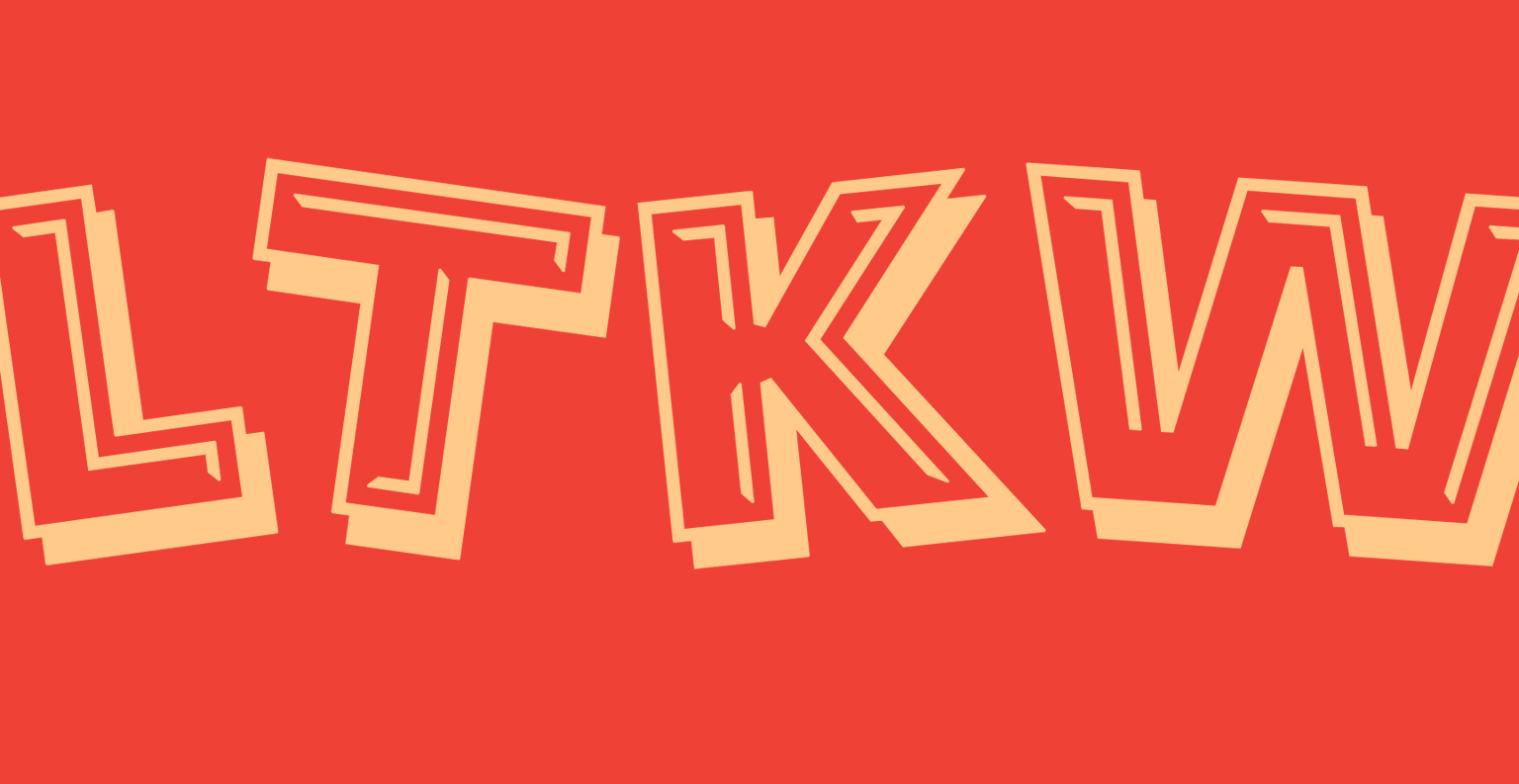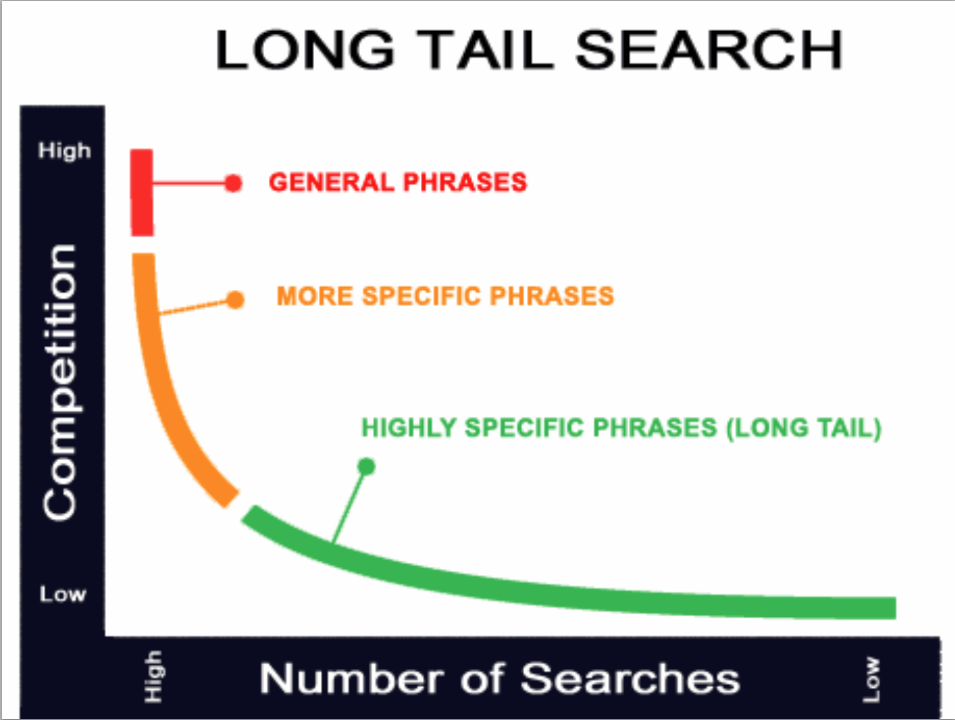| Edgeworks Product | 9 |
| Content Creation | 4 |
| SEM | 11 |
| Design | 11 |
| Instructional Design | 3 |
| Props | 218 |
| Alphabet Soup | 33 |
| Creative Collaboration | 1 |
| Website Ownership | 5 |
| Services | 5 |
| Client Website | 29 |
| Edgeworks Office | 18 |
| Marketing | 18 |
| AI Assisted Post | 1 |
| SEO | 10 |
| This Day in History | 1 |
| Branding | 1 |
| Book Review | 1 |
| Q&A | 3 |

In this edition of Alphabet Soup we take a look at Long Tail lKeywords, or LTKW.
Long Tail Keywords are basically phrases that are longer and more descriptive. That puts some meaning behind the word "long" in the name, but where does "tail" come from? It refers to the number of keyword permutations that exist and the competitive nature of those keywords. Take a look at the graph below where we consider keywords a shoe store might be interested in.


The single word phrases like "shoes" are bound to be more competitive because every single website about shoes will be competing against our store for the same word. As we begin to look at longer phrases like "running shoes" we see there will be fewer sites competing for that keyword phrase. And as we move into even longer phrases like "women's size 7 running shoes" we see competition for the keyword dropping. Of course there are a million phrases we might target by adding still more words, which creates a very long "tail" of possible phrases to consider.
Long Tail Keywords offer your business opportunities that shorter keywords fail to capture. By the time we are looking at LTKW phrases we are often better qualifying the lead we might capture from that phrase because the user intent for the phrase is much clearer. The person searching for "shoes" might be looking for hiking boots, or might be interested in the history of shoemaking. Without more words it becomes difficult to be certain what the user is actually looking for in their search. By the time we get to "women's size 7 blue Nike running shoes" the intent is obvious and we have much better opportunity to directly and precisely serve the desire of our searcher with our content.
If we had to pick three primary reasons to focus on LTKWs they would be:
With fewer websites targeting the longer phrases you have a better chance of ranking well for them naturally, and a better chance of obtaining a higher quality score in your search marketing campaigns for the phrases.
Because long tail keywords are so much more specific, pages and ads that rank well for the phrases tend to have a better CTR which leads to a greater chance of converting the traffic into a sign-up, sales, or other action.
Long tail keywords offer us low hanging fruit for our conversaion rate optimization efforts. With better click through rates and lower competition, we also gain improved conversions which is almost always the end goal of our marketing efforts.
There are plenty of ways to research and find long tail keywords related to what you offer. The simplest tool is Google itself. When you search for something on Google they provide suggestions using the autosuggest tool. Take a look to see if any of the suggested searches offer long tail opportunities for you.
In addition to the autosuggestions that pop up in the search query box look at the bottom of search engine results pages themselves for additional suggested related searches.
If you are looking for tools to handle the heavy lifting for you then there are of course a lot of SEO tools available for this task. Some of the more common ones include Answer The Public which can help you uncover questions people are asking around your topic, Wordstream's Keyword Tool which is both free and popular, your own website Analytics, and more.
As competition for keywords decreases so do costs associated with the keywords in our search advertising. This means we not only have a better idea about search intent, we pay less for the lead - a win-win! Targeting Long Tail keywords means we are looking at fewer searches, but they will be better qualified and cheaper to convert. It really does mean there is more effort involved in creating appropriate content to target long tail phrases, but the benefits are real.
Once you have identified the LTKWs that you want to target then it comes time to create the content on your website that matches the keyword phrases you've chosen. Use the Long Tail phrases in your page title tags, your META descriptions, the page URL, and in your body content.
Blog posts, articles, FAQ pages, product guides, and dedicated landing pages are all good candidates for long tail keyword content.
---
If you would like help developing your LTKW strategy, implementing your strategy for content production or search engine marketing please get in touch today.